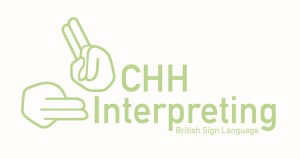
As a freelance interpreter I take direct bookings from a hearing or deaf person but also accept work through interpreting agencies. With large public bodies no longer able, or willing, to pay interpreters on an individual basis they are starting to use agencies to make booking interpreters easier and to make the agencies responsible for sorting most things , e.g. invoicing, assignment details, etc.
Since working as a sign language interpreter I feel I have good working relationships with a variety of agencies. However, one agency in particular, has not improved its working practices, despite numerous meetings with sign language interpreter associations, legal action taken individually by interpreters, feedback from the local, deaf community or letters sent by unions. Alarmingly, these, seemingly, poor working practices are being disguised as interpreters not turning up to appointments, i.e. BSL/English interpreters are being used as scapegoats.
Before the agency was awarded the contract for a public service, it was operated by a local, BSL specialist agency. Maybe it’s true what they say, you don’t know what you’ve got until it’s gone. Because, now that BSL specific agency no longer exists (it ceased operating December 2017), it has left a gap in sourcing interpreters for a specific domain that this new agency has been unable to fill. It has also meant that we, as interpreters, know how a good agency can be run, e.g. woking alongside its freelance interpreters, rather than seeing them as something that needs to be tolerated.
Among other issues, there are two significant problems which have been a regular occurrence for this agency not only in this new contract but in other contracts they hold in the South West (and from what I am aware of from other interpreting colleagues across the UK, these issues may not be exclusive to the South West peninsula). These issues are: 1) providing a non-registered, unqualified interpreter to medical appointments, and 2) persistent late payments for work undertaken to interpreters and /or no payment at all.
- Medical assignments are inherently complex, with high risks if information is misunderstood. The ‘Sick of It’ report published in 2014 https://www.signhealth.org.uk/health-information/sick-of-it-report/ found that BSL users had worse health outcomes than the general population. Not only does this mean missed diagnosis and poor treatment for BSL users, but it costs the NHS £30 million per year. Therefore, any agency providing non-registered interpreters to such assignments are increasing costs to their client- which contracting an agency is supposed to make more less costly. For example, I was told by an organisation that it is cheaper for them to outsource their interpreting bookings to an agency than it would be to pay someone to manage interpreting bookings because of the costs of a full time salary and the benefit associated with that (sick pay, holidays, etc). Yet, this agency’s policies and procedures stated that they only recruit interpreters who are NRCPD registered https://www.nrcpd.org.uk/index.php. When challenged about this it was stated that this was because the agency was finding it hard to find interpreters who want to work for them . This leads me onto issue number 2:
- There has been persistent late/ none payments for a significant period of time since this agency was awarded a contract for a public service in the South West. Since being awarded this new contract recently in Devon, the issue of payments has not improved and has resulted in many interpreters starting legal proceedings to try to retrieve the money they are owed through working for them. This, of course, has meant that a large proportion of most of the interpreters in this area are refusing to work for this agency as there is no guarantee they will be remunerated for the work they have done. And, if they are finally paid, this entails reminder emails, phone calls and texts to chase payment.
So, maybe the answer is simple – I am a freelance interpreter, I can decide who I will and will not work for, right? Well, in some ways – yes. But I like to believe that the majority of interpreters I have worked with have chosen this line of work because we have an interest in the well-being of the people for whom we work. In an article by Street Leverage https://streetleverage.com/2013/02/sign-language-interpreters-and-the-quest-for-a-deaf-heart/ it talks about cultivating a ‘Deaf heart’. It also states that “Part of having a Deaf heart is caring enough about the well-being of Deaf people and their communities to put them above ego, pride, and unwillingness to fight for what is right.” This doesn’t mean that I believe all interpreters should be working for this agency regardless of whether they receive payment for their work. On the contrary, I am proud of myself and other colleagues I know who have worked hard and paid their way to earn their title as a professional. However, it does mean this agency takes advantage of our good will and Deaf heart. And so, the original question above that seemed easy to answer is now grey and unclear as to the outcome. Essentially, if we don’t provide interpretation for these appointments, then who will? And so, do some interpreters find themselves accepting some work regardless of whether they know they will be paid. Not because they don’t care about money – I think this is a naive stance and for the profession to achieve as much as it has done to date, this has meant orchestrating appropriate recompense for our services as sign language interpreters. But, it will mean interpreters cannot turn a blind eye to the issues surrounding them both locally and nationally. Whilst interpreters can still take a stance to not work for this agency, it is therefore necessary and relevant for those interpreters to not act as bystanders to the dire situation unravelling in the Devon area, but to look at ways to make sure voices are heard and actions taken.
There also seems to be a default narrative that when an agency such as this one fails to provide interpreters there is a disservice to the deaf community. But what about the disservice to the hearing folk we also interpret for? Let’s not forget that it is not just about the deaf person, for example, unable to understand the diagnosis from their doctor, but surely it is also about the doctor unable to diagnose their patient? I believe they too have a duty to report such instances and not to be a bystander to these avoidable occurrences. They too have a responsibility to investigate why an interpreter was not present at an appointment or ask to see their ID badge which should show they are part of NRCPD.
It does not have to be like this when working with agencies. Many agencies I work with demonstrate their ability to do a good service to the service user (both deaf and hearing) and form a good, working relationship with its interpreters. Almost as if the agency and the interpreters have the same aim – providing high quality interpreting for both the deaf and hearing client! What is currently taking place in the South West IS avoidable, unnecessary and needs to be stopped and action taken by all parties involved – the deaf community, interpreters and hearing folk. As the ASLI representative for the Devon and Cornwall interpreters, but also as an interpreter directly affected by this, I will be part of this action and not a bystander.
Who’s with me?
Photo by: https://www.flickr.com/photos/57466809@N07/5607861762/in/photolist-9xxKVL-qfuFfA-oV1Vjf-av9WYv-7a84GA-gkWRzJ-7zdceS-86DmKm-pMyZ6m-dxr8hK-vA2wN-RNWKM6-nftAEv-59MbZg-rRvKH-7QaAjH-VkHg62-pY9duu-dNMntv-U1BwSP-ewAY1r-UvXgDg-TKk99s-jrTMjs-TrRTgV-R7hY7n-aBNPhb-wbhNeY-4m5NuZ-bZ374-o5ZhXc-no2K1x-5R8UR3-dK1Eis-Tv81im-bQcGhn-dB6UZe-CGw82S-p3uFTA-d68M9W-2A2Sus-3YsXBy-cbnpq-65Nuan-eWd1fV-6cY1Jh-57s47x-d9KDXv-CiyiMG-bkQWJt






 The other day I had arrived to interpret a meeting with another interpreter (my co-worker). One of the hearing attendees of the meeting asked me why there was a need for two interpreters (as opposed to just me). Without thought I quickly replied that it was linked to the fact that interpreters cannot work for long periods of time without fatigue having an effect on their interpreting ability and so the other interpreter can take over after about 20 minutes (implying after the interpreter had swapped with me I could then rest). The second interpreter then quickly added that it was not just about turn takings to reduce fatigue, but also to feed the ‘working’ interpreter any information they may have missed or not heard, to write down jargon, names or dates, etc. These are just some of the main reasons for why a second interpreter would need to be booked for some assignments. Looking back I am quite shocked by the rather simplistic answer I gave and I have been trying to look at the possible reasons for this.
The other day I had arrived to interpret a meeting with another interpreter (my co-worker). One of the hearing attendees of the meeting asked me why there was a need for two interpreters (as opposed to just me). Without thought I quickly replied that it was linked to the fact that interpreters cannot work for long periods of time without fatigue having an effect on their interpreting ability and so the other interpreter can take over after about 20 minutes (implying after the interpreter had swapped with me I could then rest). The second interpreter then quickly added that it was not just about turn takings to reduce fatigue, but also to feed the ‘working’ interpreter any information they may have missed or not heard, to write down jargon, names or dates, etc. These are just some of the main reasons for why a second interpreter would need to be booked for some assignments. Looking back I am quite shocked by the rather simplistic answer I gave and I have been trying to look at the possible reasons for this.

